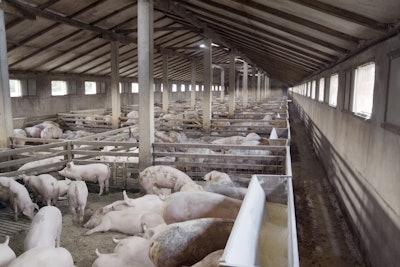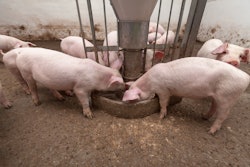
Pig owners in South Africa’s Eastern Cape have been offered advice on preventing the spread of African swine fever (ASF) as further outbreaks are confirmed there and in three other provinces. Meanwhile, in the Caribbean region, exports of Brazilian pork are scheduled to start soon to the Dominican Republic to meet the gap in demand resulting from ongoing disease outbreaks.
ASF continues to spread among South Africa’s farms, causing devastating losses to affected herd owners.
After 13 pigs died, one owner in Eastern Cape described the pain of watching her animals become increasingly sick, reported Food for Mzansi.
While the authorities in Vietnam have recently authorized the sale of the world’s first ASF vaccine, there is no sign of this – or any other product – becoming available in South Africa any time soon. There is no cure for the disease either.
By the start of August, ASF outbreaks had already been confirmed in three areas of the Eastern Cape — Nelson Mandela Bay, and the municipalities of Mnquma and Makana.
According to a senior official at the agriculture department, the two main reasons for the spread of the disease are contact with an infected pig, and feeding waste contaminated with the virus. The risk can be mitigated by keeping swine in enclosed pens — rather than being allowed to roam — and avoiding giving food waste to pigs. The virus can be destroyed, however, by boiling the food for 20-30 minutes.
Over the past three weeks, two more ASF outbreaks have been officially reported in the Eastern Cape.
According to recent notifications to the World Organisation for Animal Health (WOAH), one of these occurred at a farm with approximately 1,000 animals in Buffalo City in January. A more recent outbreak involved a herd of 32 pigs in the Nelson Mandela Bay area in mid-July.
Since the first cases in the province in April 2020, 34 outbreaks have been confirmed. More than 19,000 swine have been directly impacted, including more than 1,100 mortalities.
Further outbreaks in 3 other South African provinces
April 2019 saw the first cases in the nation’s longest-running ASF outbreak series, as reported to WOAH.
Five recent outbreaks have increased the total to 161, and the number of pigs affected to almost 64,000. Starting between early July and mid-August, four were located at premises in Gauteng, and one in Free State. Each of the affected herds comprised between 10 and 234 animals.
After an eight-month hiatus, ASF was reported again in early June in the province of KwaZulu-Natal. Presence of the virus was confirmed in a herd of 61 pigs, 35 of which died.
ASF developments in the Caribbean
In April 2021, the Dominican Republic officially recorded its first cases of ASF in 40 years. Since then, the veterinary authority has registered 241 outbreaks with WOAH, with the most recent cases starting in January 2022.
By March of this year, it was forecast that pig meat production in the Dominican Republic would be 30% lower in 2023 than before the first ASF cases.
According to the agriculture ministry, ASF is not yet eradicated, but the disease is under control in the Dominican Republic.
This month, the Brazilian Association of Animal Protein ABPA reported that the market had opened to imports of pork from Brazil. With immediate effect, pig meat from three Brazilian states can be shipped to the Caribbean country.
As a result of a severe and ongoing challenge from ASF, the Dominican Republic has a high demand for pork. By initiating the export of its pig meat, the ABPA reports that it will be contributing to the Caribbean nation’s food security.
Last month, Haiti Libre reported that the United Nations’ Food and Agriculture Organization (FAO) has confirmed its commitment to supporting the Haitian government to implement a national plan to control and eradicate ASF. This was announced jointly by agriculture minister and the FAO’s representative in Haiti.
After a prolonged absence, ASF was detected again in Haiti two years ago. Based on notifications to WOAH, there were 31 confirmed outbreaks up to March 2022.
View our continuing coverage of the global African swine fever situation.

















